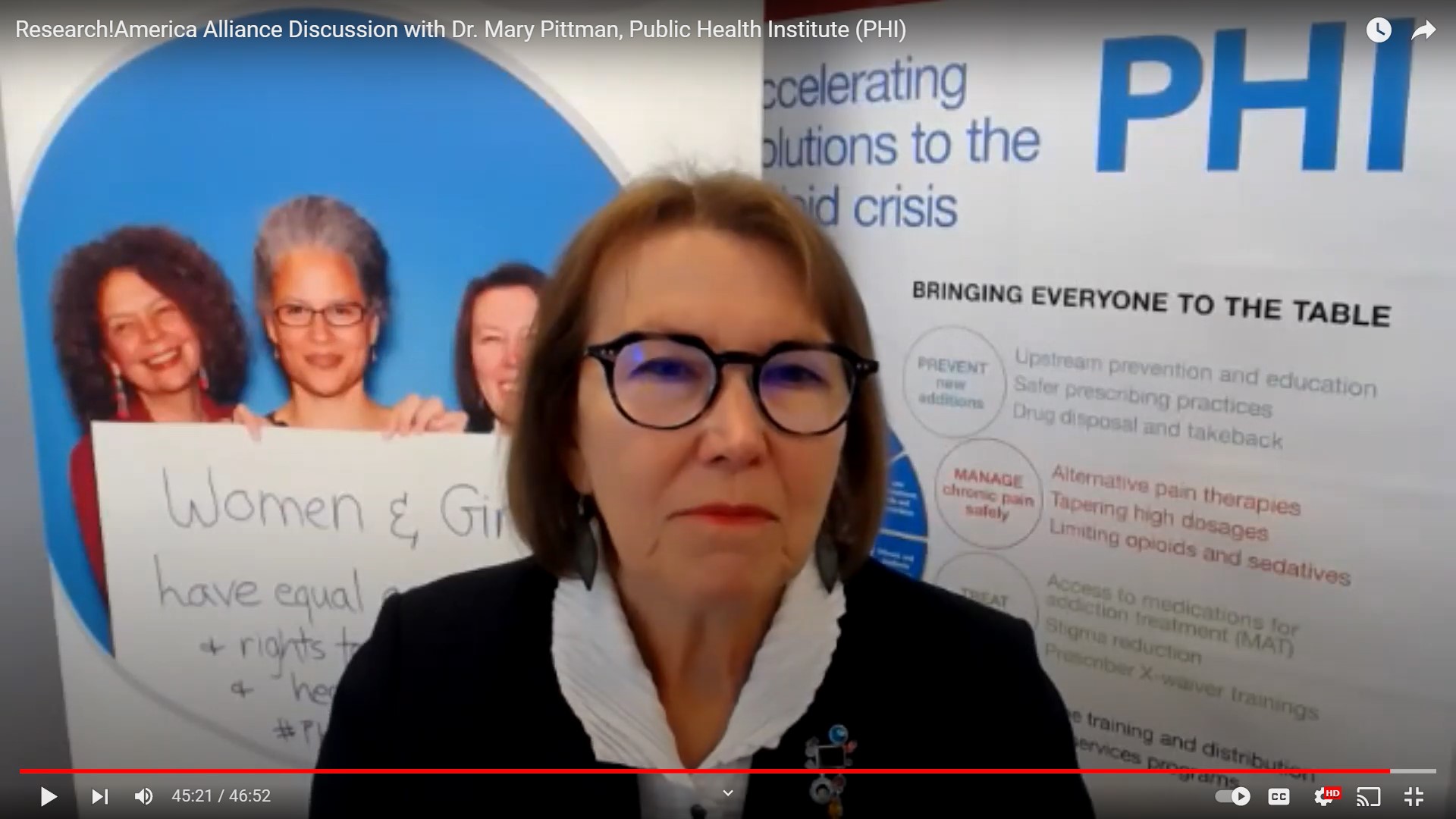
Webinar Recording: Better Data for More Equitable Public Health Research
-
Focus Areas
Data, Technology & Innovation -
Expertise
Research – Surveillance
Research is only as good as the data informing it. In April 2022, PHI’s President and CEO Dr. Mary Pittman joined Research!America for an alliance discussion about what good data really looks like in the context of public health research.
In this discussion, Dr. Pittman explores tools and approaches to make data more precise, and how social determinants of health and other community-informed measures provide critical context to make public health data—and the research that comes from it—more meaningful and actionable.

Data is only as good as its applicability by our communities. Data is not neutral, and if we want to build health equity, we need to examine the scientific quality and quantity of the data we get—but also make sure that we are listening to communities to see and address what the data may be missing.Mary A. Pittman
PHI President and CEO
Learn more about how PHI uses data to shape equitable solutions:
- PHI’s Healthy Places Index (HPI) mapping tool: The HPI tool, developed by PHI’s Public Health Alliance of Southern California, is a powerful data, mapping, and policy platform designed to identify opportunities to improve neighborhood health in areas where it will have the strongest impact on life expectancy. Public health and health care leaders have used HPI to guide public health resources for years; during the pandemic, it became a core tool to guide COVID policy and strategy, particularly to identify and direct resources to communities experiencing the most disproportionate impacts of COVID-19. The HPI tool uses census tract data, to drill down to the neighborhood level, which reveals micro-level disparities–like families experiencing high levels of food insecurity–so we can develop tailored responses.
- PHI’s Research on Pregnant Women and Offspring Exposure to Toxic Chemicals: PHI’s Child Health Development Studies tested blood levels of 150 Black and 150 non-Black women for chemicals like pesticides. Instead of simply publishing their findings, they shared back the results, individually and as a cohort. The personal report-backs led to greater motivation to access health and safety information, and increased engagement with the reports among Black participants.
- Experts Weigh in on Chemicals in Bay Area Drinking Water: After California’s Paradise Fire, neighbors were concerned about home drinking water safety. PHI’s researchers tested water samples for chemicals, and provided results directly to the community—helping to mitigate some of the ongoing trauma and trauma from the wildfire and support rebuilding a sense of community and personal agency.
- PHI’s Study Reveals Inequities in Alcohol Screenings, Resulting In Missed Opportunities for Treatment: PHI’s Alcohol Research Group (ARG) examined the impact of Medicaid expansion on alcohol and opioid treatment admission rates among adults. Medicaid expansion led to increased Medicaid-insured alcohol and opioid treatment rates in the general population, and particularly among Black and Hispanic/Latinx groups. The study’s findings also suggest that there are significant disparities emerging between low-income individuals living in expansion states and those living in non-expansion states, particularly in the southern region of the U.S.—which could continue to widen treatment disparities.
Originally published by Research!America
Work With Us
You change the world. We do the rest. Explore fiscal sponsorship at PHI.
Support Us
Together, we can accelerate our response to public health’s most critical issues.
Find Employment
Begin your career at the Public Health Institute.



